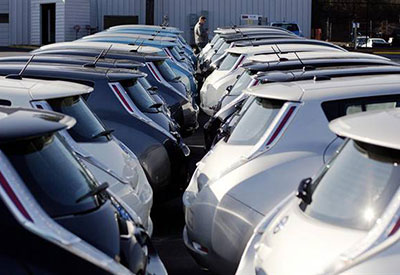Electric Vehicle Sales Continue Rising in Q1 2017

June 5, 2017
Electric vehicle sales continued their upward trend through the first quarter of 2017, reports Fleet Carma’s Eric Schmidt.
In January 2017 over 30,000 EVs (battery EVs and plug-in hybrid EVs combined) were on the road in Canada. By the end of March 2017, the total was 32,482 EVs.
The first two months of 2017 were predictably slow for new EV sales in Canada. To the delight of EV dealers everywhere that changed by the end of March. A resurgence in March saw an all-time high for battery EVs (BEVs) at 873 new car sales, an increase of 381 cars over March 2016. Plug-in hybrids (PHEVs) also saw a notable increase over the previous year in March of 166 vehicles. Together, the two categories set a new monthly record for plug-in electric vehicle sales of 1474 total vehicles.
Three provinces, Quebec, Ontario and British Columbia, continue to dominate EV sales across Canada, totalling 95.8% of sales nationwide. Quebec continues to lead all provincial sales with over 14,000 total EV sales. Electric vehicle sales in Ontario set a new record by surpassing the 10,000 total EVs milestone. British Columbia, third for provincial EV sales, maintained a first place position for EVs by hitting 4% of all passenger car sales in March of 2017.
If current trends continue, both British Columbia and Quebec EV sales will surpass 5% of the total passenger vehicle market.
Canadian plug-in electric vehicle registrations for Q1 2017
Despite a seasonally slow start to the first quarter of the year, March will go down as a banner month on multiple accounts including new vehicle registrations. An all-time high of 1,474 new PEV registrations in March this helped the Q1 total rise over 68% from Q1 in 2016.
Unlike previous years, the strong results in early 2017 show a visible quickening in the electric vehicle market. If trends continue, it is likely to see monthly registrations of over 1,500 PEVs by the seasonal peak in September of 2017.
This article was first published in EV Industry. Read the full article: http://www.fleetcarma.com/electric-vehicle-sales-canada-q1-2017.











![Guide to the Canadian Electrical Code, Part 1[i], 26th Edition– A Road Map: Section 56](https://electricalindustry.ca/wp-content/uploads/2022/11/Guide-CE-Code-2.png)



